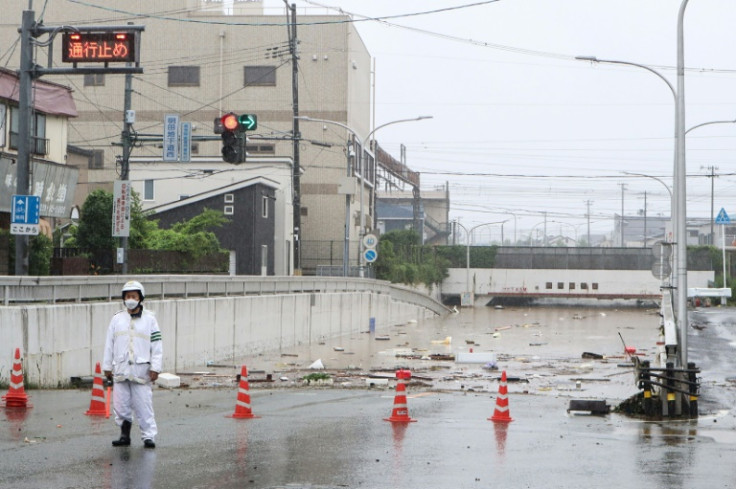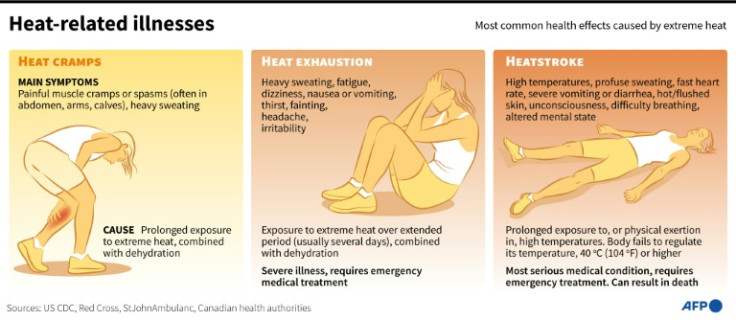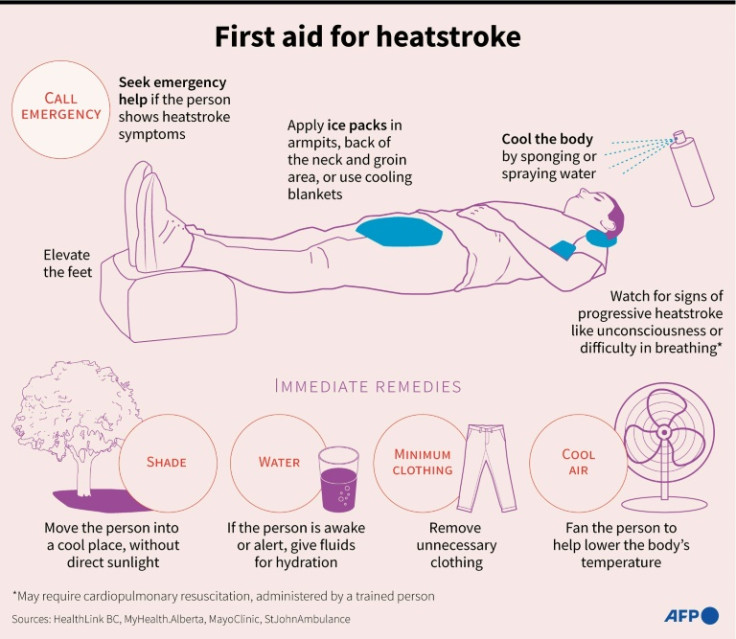Dangerous heatwaves strike globe as wildfires rage
Scorching weather gripped three continents on Sunday, whipping up wildfires and threatening to topple temperature records as the dire consequences of global warming take shape.

Scorching weather gripped three continents on Sunday, whipping up wildfires and threatening to topple temperature records as the dire consequences of global warming take shape.
Predictions of historic heat hung over swathes of Asia, Europe and the United States.
In the Vatican, 15,000 people braved sweltering temperatures to hear Pope Francis lead prayer, using parasols and fans to keep cool.
But in their black robes, priests like Francois Mbemba said they were "sweating like hell".
The 29-year-old said it felt hotter in St Peter's Square than in his Democratic Republic of Congo diocese.
In Japan, authorities issued heatstroke alerts to tens of millions of people in 20 of its 47 prefectures as near-record high temperatures scorched large areas and torrential rain pummelled other regions.

National broadcaster NHK warned the heat was life-threatening, with the capital and other places recording nearly 40 degrees Celsius (104 degrees Fahrenheit).
Japan's highest temperature ever -- 41.1C first recorded in Kumagaya city in 2018 -- could be beaten, according to the meteorological agency.
Some places experienced their highest temperatures in more than four decades Sunday, including Hirono town in Fukushima prefecture with 37.3C.
The US National Weather Service warned a "widespread and oppressive" heatwave in southern and western states was expected to peak, with more than 80 million people affected by excessive heat warnings or heat advisories on Sunday.

Southern California is fighting numerous wildfires, including one in Riverside County that has burned more than 7,500 acres (3,000 hectares) and prompted evacuation orders.
In Europe, Italians were warned to prepare for "the most intense heatwave of the summer and also one of the most intense of all time".
Predictions of historic highs in the coming days led the health ministry to sound a red alert for 16 cities including Rome, Bologna and Florence.
Temperatures are likely to hit 40C in Rome by Monday and 42C-43C on Tuesday, smashing the record of 40.5C set in August 2007.
Sicily and Sardinia could wilt under temperatures as high as 48C, the European Space Agency warned -- "potentially the hottest temperatures ever recorded in Europe".

The Acropolis in Athens, one of Greece's top tourist attractions, closed for a third day running Sunday during the hottest hours.
In Romania, temperatures are expected to reach 39C on Monday across most of the country.
Little reprieve is forecast for Spain, where the met agency warned of a new heatwave Monday through Wednesday taking temperatures above 40C in the Canary Islands and the southern Andalusia region.

On La Palma island, temperatures dropped Saturday, helping firefighters battle a blaze which burned 5,000 hectares this weekend forcing the evacuation of 4,000 people.
Despite the heat, parts of Asia have also been battered by torrential rain.
In South Korea, rescuers on Sunday battled to reach people trapped in a flooded tunnel, after heavy rains for the last four days triggered floods and landslides that killed at least 37 people and left nine missing.
The country is at the peak of its summer monsoon season, with more rain forecast through Wednesday.

In northern Japan on Sunday, a man was found dead in a flooded car, a week after seven people were killed in similar weather in the country's southwest.
In northern India, relentless monsoon rains have reportedly killed at least 90 people, following burning heat.
Major flooding and landslides are common during India's monsoons, but experts say climate change is increasing their frequency and severity.

China on Sunday issued several temperature alerts, warning of 40-45C in the partly desert region of Xinjiang, and 39C in southern Guangxi region.
US climate envoy John Kerry arrived in the country on Sunday to restart stalled talks between the world's two biggest emitters of planet-warming gases.
It can be difficult to attribute a particular weather event to climate change, but many scientists insist that global warming -- linked to dependence on fossil fuels -- is behind the intensification of heatwaves.
The EU's climate monitoring service said the world saw its hottest June on record last month.
© Copyright AFP 2025. All rights reserved.





















